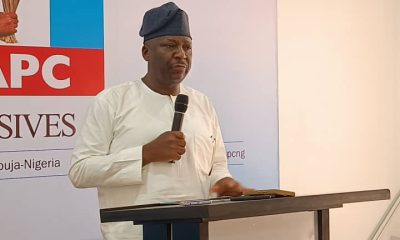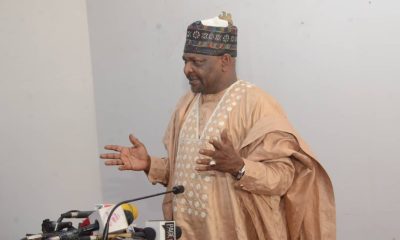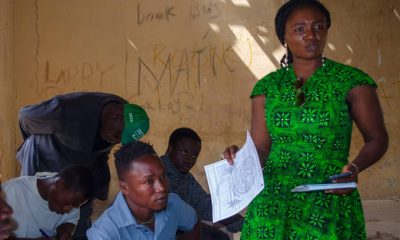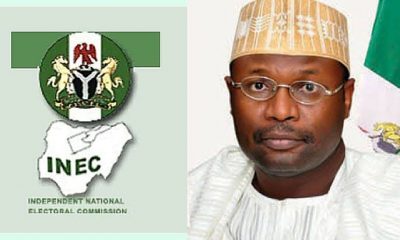Opinion
2023 Elections, Igbophobia, questions and their answers
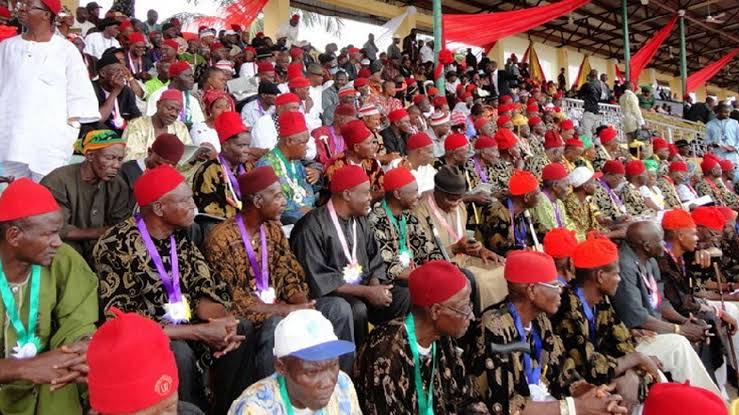
By Benneth Joshua
The 2023 general election was not only a record retrogression to the inglorious days of electoral fraud, voter intimidation and suppression. It also saw the entrance of age-long reality of ethnic hatred and chivalry.
The tune was set by the infamous declaration by the then candidate and now President-elect from All Progressives Congress (APC), Bola Tinubu, when he said in his local Yoruba language, Emi-Lokan (it is my turn).
Tinubu’s remarks was closely followed by Atiku’s when he told Northern voters not to vote non-northerners.
In the case of Tinubu, some argue that his Emi-Lokan speech was not directed at the more than 200 million Nigerians, many of who do not sympathize with the APC due to the party’s inability to live up to its campaign promises of 2015-2019. And then from 2019-2023.
Tinubu is said to be addressing certain interests in the governing party who are privy to a secret agreement entered into, to allow President Muhammadu Buhari, who flew the APC’s flag; that it was holis turn as agreed to have a shot at the presidency.
These arguments whether true or false, valid or invalid, have in the past days been either justified or invalidated.
For those who say that Tinubu was only speaking to interest blocks in the party, the events of the presidential and governorship elections as it concerns allegations of rigging, deliberate manipulation of the BVAS and IREV platforms, gross voters iintimidation, and sundry electoral crimes, have laid this debate in the gutters.
It is now obvious that from the day he declares Emi-Lokan, he meant, even as subsequent video clips that made their way to the social media space, that he meant that it was his turn to take over as president of Nigeria, after Buhari.
So, his speech, was to all and sundry, only that many Nigerians chose delusional optimism.
But that is not the thrust of this conversation. Let’s talk about how we got to the point where tribalism emerged most potent campaign currency in the Southwest more than 40 years after it was used in the first and second republic elections in the same region.
It is instructive to note that two major regions that have benefitted from the post civil war federal or unitary (if you care) structure of the country is the north and southwest.
Except for the ‘Jonathanian’, 1999 to present day Nigeria has seen power revolved around the Southwest (Obasanjo, Yar’adua (North), Atiku (Vice President – North), and Osibanjo (Vice President).
And even when the circuit was interrupted by Goodluck Jonathan (Bayelsa – South-south), and the north again produced the Vice President, Namadi Sambo.
It was not surprising then that the Southeast, a region with over 20 million registered voters, and a major economic contributor to Nigerian Gross Domestic Product (GDP), and one that has since been left out of the power equation demanded, in 2023, to be given a chance to lead the country as the Southwest, the North and now, the South-South has done.
Sadly, this demand, which in saner societies would seem just, fair and equitable, opened the crevice of long held, deep seated ethnic hatred and bigotry against the Igbo, the predominant tribe in the region.
The bias unfortunately came from no other groups in the country than from fellow southerners, from elements in the Southwest and South-South epitomized by the River State Governor, Nyesom Wike, and a former Lagos State governor, Bola Tinubu.
Wike he was who opposed the opportunity presented for a Southeast candidate to fly the People’s Democratic Party (PDP) flag in the presidential election when he sought and obtained an open contest for all interest for the ticket, in the party.
His action as records show led to the exit of Peter Obi from the party into the Labour Party where he was made the party’s standard bearer.
Events would show that, that decision by Obi would be fate driven as it became clear that Nigerians, especially the youths were tired and disenchanted with the PDP and APC.
Fuelled by the hunger for change occasioned by years of poor governance, state sponsored police brutality, and the rest, but not excluding the Lekki incident now termed Lekki Massacre, youths assembled behind the Labour Party and its presidential candidate.
For them, he represented hope for a new Nigeria, and an end to the old order of leadership arrogance and ineptitude that has seen hundred of thousands of Nigerian youths die in the Sahara desert and the Mediterranean sea as they made inglorious, perilous journeys for greener pastures in Europe, Asia and North Africa.
Again, what inspired the diabolical hatred against the Igbos from her sister Southerners.
For the likes of Wike and some elements in the Southeast, the Igbos are arrogantly dominant and a chance at the presidency could mean the subjugation and oppression of others.
In which case, the rejection of the Igbo is an expression of a xenophobic tendency which a lawyer friend called ‘Igbophobia’.
But what caused Igbophobia in the heart of the Wike’s and Tinubu’s of this world? For the Southwesterners and South-Southerners, it beggers understanding the seathing hatred against a tribe that has contributed immensely in the building of the regions’ economy.
What would be the Southwest or the South-South, or even the Nigerian economy without the egalitarianism, penchant for commerce and sense of globalism of the man from the Southeast.
At this rate, and considering the volcanic hatred against the region, it is not surprising therefore the clamour by the Indigenous People of Biafra (IPOB), for a state of respite for the people of the Southeast.
They need a home where they’ll be accepted for who they are. A home that they can call their own.
You see, what is going on against the Igbos in parts of the country, vis a vis the state sponsored economic terrorism against the region where infrastructures necessary for the growth of the region is delayed her, is akin to putting fire in a rat’s hole.
Of course the rodent in search of safety and survival will run out of the hole. Fire has been set in the Igbos’ hole. They’ve been successfully smoked out and are to be exterminated wherever they are found, for daring to express themselves and or assert their identity.
Recently, a journalist in reaction to the renewed targeting of the Igbos asked if Nigerians have quickly forgotten the events of the Civil-War? The answer is yes, they have.
What this stares us in the face is the probability of another civil war considering the treatment of the tribe described, again stemming from hatred for them, as a dot in a circle.
But another round of violence can be avoided if steps are urgently taken to ensure the restructuring of the country, or putting in place economic and social policies and infrastructures in the southeast, such as the dredging of the Lower Niger River to allow for a World Standard Warf where ships can berth.
If the Southwest and the South-South continue to see people of Southeast origin as pests, despite the economic advantages they bring to the region, then all reasonable persons must seek for, and ensure that the Southeast is made habitable for its people as Israel was made habitable for the Jews after the second world war.
Anything short of this could mean that other tribes in Nigeria are the ones seeking for another orgy of violence, and not the Igbos.
But let no mistake be made about it. The new wave of violence, God forbids it happen, may not end in favour of those bent of beating the child and at the same time insisting that it does not cry.
Benneth Joshua writes from Abuja
+2349041581272
groomdemyoung@outlook.com

